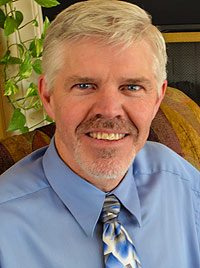Fight Back against Immune System Breakdown and Aging Acceleration
“Every stress leaves an indelible scar, and the organism pays for its survival after a stressful situation by becoming a little older.” – Hans Selye
Sacramento, Calif- 2020 has been incredibly stressful for so many Americans (80% in a recent survey) that the scariest and most terrifying image for Halloween decorations this year may be the number 2020.
According to the American Psychological Association (APA), “We are facing a national mental health crisis that could yield serious health and social consequences for years to come. The COVID-19 pandemic, and the plethora of other serious and destabilizing issues of 2020, has had a substantial impact on the lives of all Americans, and it will continue to do so.”
Acute vs Chronic Stress
Our bodies have been designed to respond to short bursts of stress (like running away from a predator), followed by a long period of rest and relaxation. In today’s world, and even more specifically, Covid-19 in 2020, most people are not facing the acute stressors, but rather the chronic stressors (which dramatically increases the likelihood of getting sick) including such things as: job loss or working unfamiliarly from home, home-schooling children, tens of millions facing unprecedented hunger and homelessness throughout America, racial injustice, the fear of getting the virus and wearing the mask or not, political instability, cultural “wars,” conspiracies, loss of loved ones to the virus, record-breaking forest fires and the effects of climate change, and a growing hostility and bitterness between fellow Americans. With the upcoming holidays and traditional gatherings many are also feeling anxious about how and with whom they will be able to safely celebrate. In spite of all of this uncertainty and stress we have also seen incredible courage.
As a naturopathic doctor, I routinely ask patients about their level of stress and anxiety. They are both so rampant that I jokingly tell my patients, “If you deny stress and anxiety, you aren’t paying attention.” Anxiety has been on the increase for years and in 2020 anxiety and stress-related conditions may be at an all time high.
“The Silent Killer”
Stress is often called “the silent killer,” and has been associated with the top six causes of death. Prior to 2020, two out of three visits to the primary care doctor were for medical conditions highly correlated to stress; this year that percentage would, no doubt, be higher.
Positive Stress
Not all stress is bad, however. There is a positive stress, called eustress, which might accompany a job promotion, getting married, earning a Ph.D., or having a child. Over time even an accumulation of many positively perceived changes can lead to a negative stress but in this context, I am referring to a stress that often leads to greater: motivation, fulfillment, hope, vigor, purpose, and self-actualization. My solo run to Canada and across the USA were stressful for me, but the exhilaration and purpose, were much greater than the stress on my body, mind and spirit.
Naturopathic doctors seek to inspire patients to optimize their health and to change the things they can change. A person’s stress response is dependent on their perception of those events and the attitude we choose to have regarding those events: Viktor Frankl, holocaust survivor, and the author of one of the best-selling and inspiring books of all time, Man’s Search for Meaning, said, the only thing for which we have 100% control, is our attitude. He said, “When we are no longer able to change the situation, we are challenged to change ourselves.” “Everything can be taken from a person but one thing: the last of the human freedoms-to choose one’s attitude in any given set of circumstances, to choose one’s own way.”
The Stress Response
The stress response includes the hypothalamic-pituitary-adrenal (HPA) axis and the sympathetic nervous system (SNS). The HPA axis and the SNA regulate the body’s fight-or-flight response, which is important for producing an immediate response to danger, such as being chased by a dog or waking up by to the noise of somebody breaking into your house, or dealing with a medical emergency.
The HPA axis, also includes the adrenal glands (located above the kidneys). The adrenal glands are often called the “glands of stress.” I also call these stress-hormone producing glands, the “Rodney Dangerfield of the body,” because “they get no respect,” until one suffers, of course, from adrenal-related health conditions. When a person senses danger, the adrenals rush all of their resources into meeting the perceived stress. Surgeons are very aware the body cannot survive the stress of surgery unless there is a massive output of cortisol from the adrenal glands.
The adrenals are an extension of the SNS, critically important for the production of many of the body’s stress hormones: cortisol, DHEA, and neurotransmitters, epinephrine (adrenaline) and norepinephrine.
Chronic stress, such as the stress that most Americans are experiencing in 2020 compounded by the routine stress already part and parcel of contemporary culture is something that our body was never designed to handle. Stress on the body, mind, and spirit, and living under constant stress and pressure, without relief, is certain to cause some sort of breakdown.
Adrenal Glands
Every challenge to the mind and body creates a cumulative demand on the adrenal glands: lack of sleep, perfectionism, financial pressures, emotional stress, reliance on stimulants like caffeine and countless others. The result is, the adrenals are constantly on high alert.
Sustained high cortisol levels, hypercortisolemia, increase waist size, destroy healthy muscle and bone, slow down healing and normal cell proliferation, re-direct biochemicals needed to make other essential hormones, harm digestion and mental function, weaken the immune system and elevate blood pressure.
Adrenal fatigue, on the other hand, is low cortisol output, which often occurs after a long period of high cortisol levels, resulting in adrenal burnout, or low-adrenal gland functioning.
When the adrenals are chronically overworked, they also lose the capacity to produce sufficient DHEA for optimal health. DHEA is a precursor hormone to estrogen, progesterone, and testosterone. Insufficient DHEA contributes to: premature aging, fatigue, bone loss, loss of muscle mass and increasing abdominal fat, depression, aching joints, decreased sex drive, and impaired immune function.
Adrenal Fatigue
Signs and symptoms of adrenal fatigue include: low blood pressure, low blood sugar, light-headedness when standing up quickly, continued fatigue not relieved by sleep, increased effort to do every day task, sugar cravings, burned out feeling, increased recovery time from illness, less enjoyment with life, increased PMS, allergies, body wakes up at 10 am, there is an afternoon low between 3-4 pm, the person feels better after evening meal about 6:00 pm, decreased productivity, and many other symptoms.
Balance
Recommendations below are to balance adrenal glands. Adrenal stress (high cortisol) and adrenal fatigue (low cortisol) have different treatment plans.
Testing:
- Adrenal Panel: check your cortisol and DHEA levels, taken at 4 points throughout the day, as healthy cortisol levels start at their highest level in the morning from 6-8 am, and decline as the day progresses.
- Blood testing, using optimal ranges, include tests such as: thyroid, vitamin D, ferritin, Complete Blood Count (CBC), Comprehensive Metabolic Panel (CMP), hemoglobin A1C, and fasting insulin.
- Neurotransmitter testing such as serotonin, GABA, dopamine, epinephrine (adrenalin), norepinephrine, and glutamate, are also critically important. These neurotransmitters all have nutrient precursors, and considering the features of each of these neurotransmitters can help guide treatment options for nutrient support.
Ways to reduce stress and optimize cortisol, stress hormones and neurotransmitters
- Adrenals prefer consistency in daily routine. Think Amish farmers who: wake up with sun, eat 3 healthy and consistently-timed meals, walk 14,000-16,000 steps, while also doing muscular work, have strong family and social ties, no electricity which means no internet, TV or staying up late at night disrupting hormones, and engaging in restorative practices like prayer, etc. What are your daily routines and are they routine?
- Emotions
Change up your vocabulary. If you are emotionally upset with somebody, do NOT say, you “make” me (whatever emotion) angry or jealous, etc.” because nobody is forcing you to have a certain emotion.Take responsibility for your emotion, minimize defensiveness of the other person, and say something like, “when you raise your voice at me, I get scared, or angry, etc”. This is called an “I” statement and using this can be empowering and clarifying for both parties.
There’s no 11th commandment that says we have to be upset by the way other people treat us.
Reach out to friends. Tell your loved ones how much you appreciate them.
Pick your battles. Focus on what really matters.
Refrain from trying to control others. Allow others to make mistakes.
“Light a candle instead of cursing the darkness.”
Do your best to “walk in the shoes of the other.” Be compassionate. Be forgiving.
Be open to the Truth. If you want others to be brutally honest with you, than be perceived by others to be “open” to the truth by not flying off the handle when somebody lets you know a painful truth. Healthy connections are important for overall health. - Exercise/Movement: Just do it. There are hundreds of benefits of exercise, including the dramatic reduction of stress. As a life-long runner, there were literally hundreds of times I solved a problem I was having, while I was out running. The body requires exercise to function properly. Exercise, in whatever form, is a stress-reducer. When you exercise, your body makes chemicals called endorphins, and endocannabinoids, which act as your body’s natural opiates. Often called the “runner’s high,” it helps one to feel on top of the world, and can counteract stress and anxiety.
- Nature: There is no substitute for getting out into nature and getting vitamin N. The research is overwhelming and should be obvious that nature heals. Go: hiking, swimming in lakes, oceans, and rivers, walk in the park, camp in the redwoods, etc. Just get out of the house and immerse yourself in great outdoors.
- Sleep is essential to maintaining keeping stress to a minimum. Strive for 7 or more hours of uninterrupted sleep.
- Meditation: If you are unfamiliar, just search YouTube for meditation videos. There are many meditations from which to choose. Centering Prayer is a form of Christian Meditation founded by Trappist monk, Tom Keating, OCSO.
- Nutrition: Eat smaller and more frequent meals if you are hypoglycemic (low blood sugar). Eat a balanced diet, consisting of: complex carbohydrates/healthy fats/adequate protein; organic food whenever possible: antioxidant-rich foods, such as berries and vegetables; raw nuts and seeds; healthy oils like olive and coconut; legumes; low-mercury fish; many cups of vegetables per day; whole grains and limited dairy (unless gluten and/or dairy sensitive); grass-fed meat; organic chicken; and free range eggs.
- Supplementation: Omega-3 essential fatty acids, methylated B-vitamins, vitamin D (virtually everyone in the USA is deficient).
- Herbal Remedies for stress are called Adaptogens: Among them are: Ashwaganda, Astragalus, Eleuthero, Fo-ti, Holy Basil, and Rhodiola.
Summary
In summary, start with something, but not with everything. Why not get started by including one of the suggestions above that many lead you closer to the perceived life of the Amish farmer? Move more, create a healthy sleep routine or limit screen time. Choose an attitude of gratitude, begin to identify your emotions with “I” statements, or commit to a daily restorative practice. Again, you can do anything to create more balance and less stress in your life but trying to do everything may be overwhelming and therefore, counterproductive.

Explore additional topics from Dr. Godby, ND, MA at Natural Wellness.
As a naturopathic doctor for the last 18 years, I have witnessed the power of a preventative lifestyle and naturopathic medicine to transform the health and lives of thousands of patients.
Sacramento Naturopathic
2530 J Street, Suite 100
Sacramento, CA 95816
Phone: (916) 446-2591
sac-nd.com/dr-dennis-godby-nd-ma
(21+ years strong)
Welcome to the brighter side!
Get in front of local customers! 24/7 (365)






















